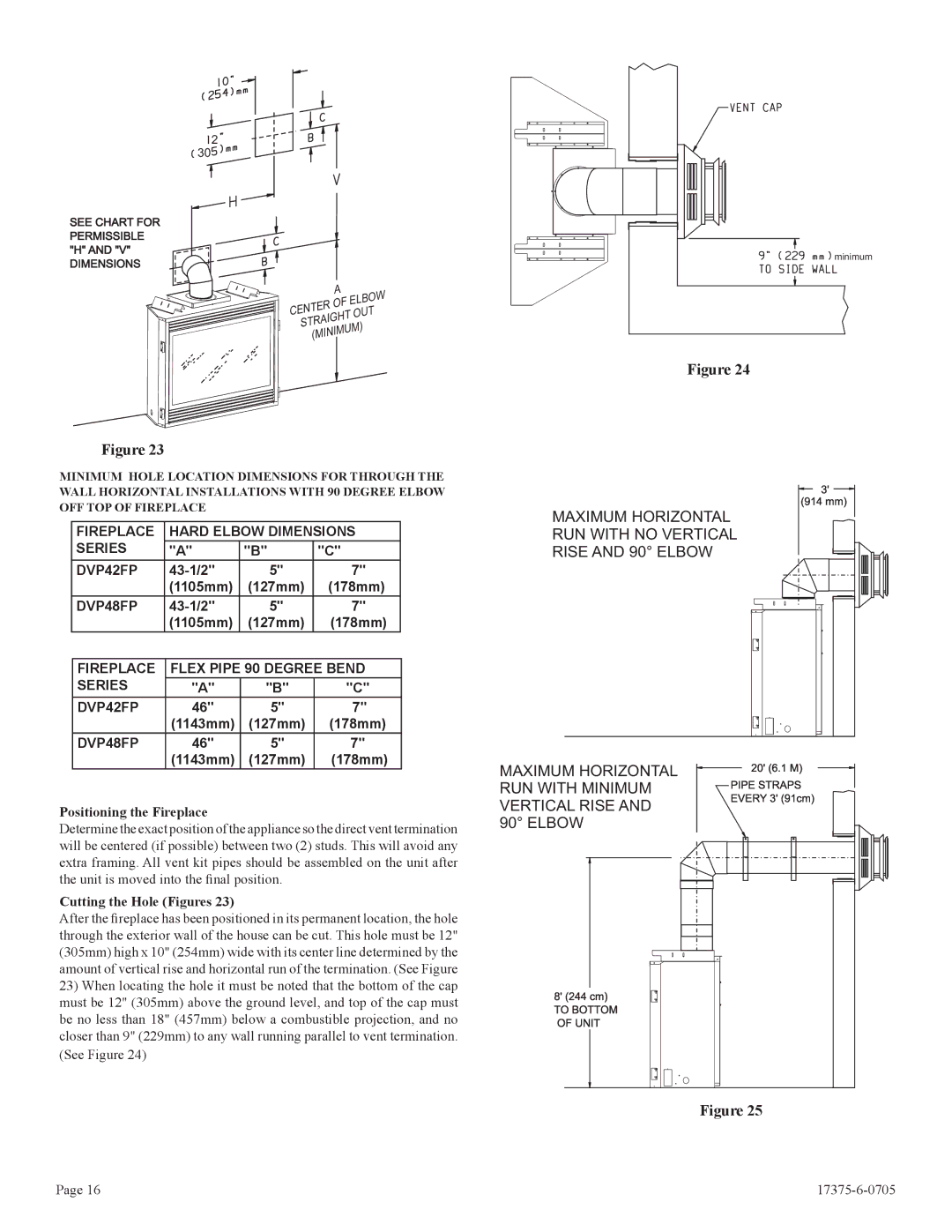
2
30
minimum
| A |
|
CENTER | OF ELBOW | |
| OUT | |
STRAIGHT |
| |
(MINIMUM) | ||
Figure 24
Figure 23
MINIMUM HOLE LOCATION DIMENSIONS FOR THROUGH THE WALL HORIZONTAL INSTALLATIONS WITH 90 DEGREE ELBOW OFF TOP OF FIREPLACE
FIREPLACE | HARD ELBOW DIMENSIONS | ||
SERIES | "A" | "B" | "C" |
DVP42FP | 5" | 7" | |
| (1105mm) | (127mm) | (178mm) |
DVP48FP | 5" | 7" | |
| (1105mm) | (127mm) | (178mm) |
|
|
|
|
FIREPLACE | FLEX PIPE 90 DEGREE BEND | ||
SERIES | "A" | "B" | "C" |
DVP42FP | 46" | 5" | 7" |
| (1143mm) | (127mm) | (178mm) |
DVP48FP | 46" | 5" | 7" |
| (1143mm) | (127mm) | (178mm) |
Positioning the Fireplace
Determine the exact position of the appliance so the direct vent termination will be centered (if possible) between two (2) studs. This will avoid any extra framing. All vent kit pipes should be assembled on the unit after the unit is moved into the final position.
Cutting the Hole (Figures 23)
After the fireplace has been positioned in its permanent location, the hole through the exterior wall of the house can be cut. This hole must be 12" (305mm) high x 10" (254mm) wide with its center line determined by the amount of vertical rise and horizontal run of the termination. (See Figure
23)When locating the hole it must be noted that the bottom of the cap must be 12" (305mm) above the ground level, and top of the cap must be no less than 18" (457mm) below a combustible projection, and no closer than 9" (229mm) to any wall running parallel to vent termination. (See Figure 24)
MAXIMUM HORIZONTAL
RUN WITH NO VERTICAL
RISE AND 90° ELBOW
MAXIMUM HORIZONTAL RUN WITH MINIMUM VERTICAL RISE AND 90° ELBOW
Figure 25
Page 16 |
